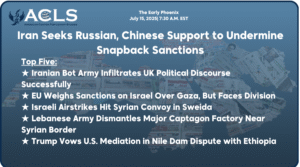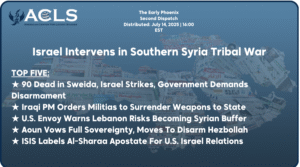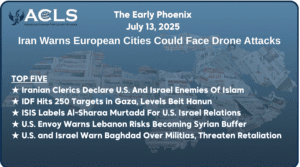September 30, 2022 marked the seven-year anniversary of Vladimir Putin’s military intervention in Syria to prop up Bashar al-Assad’s sinking regime. Since September 2015, Syrian cities, towns, and villages have suffered the same war crimes the world now sees the Russians committing against Ukraine. Syrians believe a principal reason the Russians feel free to terrorize Ukraine is that for seven years they have done exactly that in Syria and paid virtually no price for it. As the world looks for ways to end Russia’s impunity in Ukraine, a good step would be to hold the Russians accountable for the war crimes they’ve already committed in Syria. There are concrete steps the international community could, and should, take in this direction.
Seven Years of Russian War Crimes
For those who have not closely followed Russia’s military intervention in Syria, a recap may be in order. Since 30 September 2015, the date of the first Russian airstrike in the northern countryside of Hama, Russian military forces, along with Putin’s “private security companies” such as the Wagner Group, tilted the scales in favor of Assad and his militias, helping the dictator in Damascus recover large parts of Syria that were controlled by Syrian opposition forces, including Aleppo, the Hama countryside, Damascus countryside, Daraa, Homs, and others. In each place, the Russians used scorched-earth tactics that invariably left the “recovered” areas utterly destroyed. They made extensive use of internationally prohibited cluster bombs and incendiary weapons in addition to attacks with drones and surface-to-surface missiles. Idlib suffered the largest share of these attacks, followed by Aleppo and its countryside, Hama, the Damascus countryside, Daraa, Homs, and the Latakia countryside.
Many Syrian organizations have tracked the toll of these Russian attacks against Syria’s civilian population. The Syrian Network for Human Rights reports that during the seven years of their military intervention, the Russians have killed at least 6,943 civilians, including 2,044 children. The SNHR has tabulated 1,243 separate Russian attacks on civilian targets, including 223 schools, 207 medical facilities, and 60 markets. Separately, the Syrian Civil Defense, also known as the “White Helmets,” has dispatched rescuers to respond to more than 5,700 Russian attacks since 2015. In those rescue missions, the White Helmets recorded that the Russians killed at least 4,056 civilians–including 1,165 children and 753 women–and wounded at least 8,000 more. The death toll from the Russian attacks the White Helmets have tabulated is actually higher, because a large number of Russian victims died later after being rescued or could not be reached by White Helmets rescuers at the site of the Russian attacks.
As Russian forces exacted this toll on the Syrian population, they repeatedly violated international humanitarian law and the principles governing the protection of civilians. Russian forces besieged civilian populations and forced the displacement of several million, both of which are war crimes. They have also repeatedly used internationally prohibited weapons against civilians. The SNHR has recorded at least 237 Russian attacks with cluster munitions and at least 125 attacks with incendiary weapons. The White Helmets have similarly recorded 320 Russian attacks against civilians using cluster bombs, 131 inceniary weapons, and numerous other Russian attacks using drones and surface-to-surface missiles. In other words, the Russians have made utterly no distinction between military and civilian targets, using highly destructive weapons against civilians and civilian infrastructure, and deliberately targeting humanitarian corridors.
What the International Community Can Do to Hold Russia Accountable
To deter the Russians from continuing to use war crimes as a military doctrine, it is imperative today that all those responsible, including the chain of command that directs such actions, be brought to justice. It happens that the international community has options at their disposal to impose a price on Moscow for these crimes.
- First, hold the Russians accountable for using weapons and tactics in Syria that violate the Geneva Conventions. The Syrian Center for Justice and Accountability has urged the international community to undertake serious work to preserve evidence of these violations. The European Council should authorize the adoption of exceptional rules allowing the European Agency for Cooperation in the Field of Criminal Justice to collect evidence of war crimes in Syria, just as the EC has already created special bases to collect evidence of violations committed by Russian forces in Ukraine. Adopting these rules will allow the processing and analysis of evidence in close cooperation with the European Union Agency for Law Enforcement Cooperation (Europol), which can, in turn, share the evidence with relevant national and international judicial and investigative authorities, including the International Criminal Court and the International Court of Justice.
- Next, the European countries, with the political support of the United States, should request that the Office of the Prosecutor of the International Criminal Court open an investigation into Russian violations committed in Syria. The ICC is the first court capable of prosecuting individuals accused of genocide, crimes against humanity, war crimes and assault crimes, and thus it can directly try members of the Russian chain of command—including, for example, President Putin–for their culpability in crimes committed by their forces in Syria.
- Next, the same nations can turn to the International Court of Justice. The ICJ, as the principal judicial organ of the United Nations, adjudicates legal disputes that arise between states, and provides advisory opinions on legal issues that may be referred to it by the organs of the United Nations and its specialized agencies. Individual states can submit complaints against Russia’s violation of United Nations conventions and the provisions of international law, to be adjudicated by the ICJ.
- Finally, yet another option might be the European Court of Human Rights, a supranational court established in 1959 under the European Convention on Human Rights. This court’s purview is to study complaints against a member state that violates the human rights stipulated in the Convention and its protocols.
Conclusion
Thus far the Russian government can reasonably believe that whoever escapes punishment in Syria will escape punishment in Ukraine. The countries of the European Union and the United States, in particular, have a moral duty and legal responsibility to prove the Russians wrong. They should use the means and procedures at their disposal to put an end to Russia’s war crimes impunity through international judicial bodies or through joint or hybrid courts. This action is long overdue. If the world had already held the Russians accountable for their war crimes in Hama, Idlib, and Aleppo, Russia would not have dared to repeat those heinous crimes in Bucha, Mariupol, and so many other tragic townships of Ukraine.



